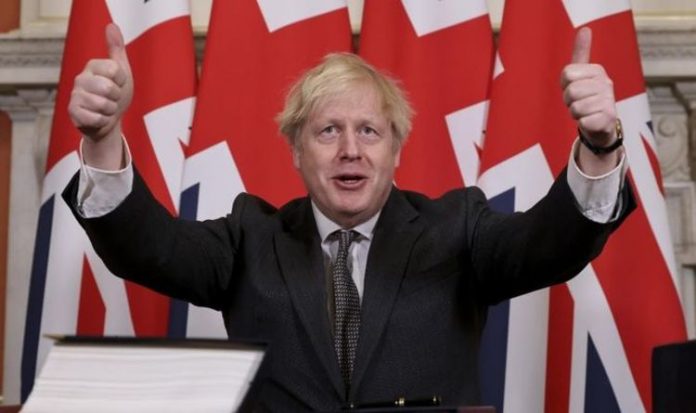Boris Johnson is facing the prospect of a damaging Commons defeat over the government’s multi-billion pound cut to overseas aid, as a group of Conservative backbenchers launched a surprise rebellion.
Led by the former Tory cabinet minister and chief whip Andrew Mitchell, who has been rallying against the cuts, the rebel MPs said they were “confident” of having the numbers to overturn the prime minister’s healthy Commons majority.
The amendment signed by 18 MPs — including 14 Conservatives — boasts other senior figures such as former cabinet ministers David Davis and Jeremy Hunt, alongside the chair of the international development committee, Sarah Champion.
It comes amid intense criticism of the government’s decision last year to flout the Conservative general election manifesto pledge and move to slash overseas aid spending from 0.7 per cent of national income to 0.5 per cent.
Ministers have insisted the cut — estimated to be around £4 billion — is only a temporary measure due to the economic fallout of the Covid pandemic, but have refused to test support in a Commons vote, or outline any timeframe for the budget to be restored.
The risk of an embarrassing defeat for the government over its decision to cut aid for some of the poorest and unstable areas of the globe could come just days before the prime minister hosts leaders from the G7 nations, including US president Joe Biden.
Mr Mitchell has tabled an amendment to the Advanced Research and Invention Agency (Aria) Bill, a piece of legislation which establishes a new “high-risk, high-reward” research agency backed with £800 million of taxpayers’ cash to explore new ideas.
The explanatory note of the amendment says: “This new clause is intended to reaffirm the duty in the International Development (Official Development Assistance Target) Act 2015 for UK official development assistance (ODA) to amount to 0.7 per cent of gross national income each year. It will require Aria to make up any shortfall in that proportion from January 2022”.
It will be up to speaker Sir Lindsay Hoyle to decide whether the amendment is selected for consideration when the Bill returns to the Commons for further consideration on 7 June.
Tobias Ellwood — the Conservative chair of the Commons Defence Committee who has signed the amendment — described the government’s cut as “devastating” on BBC Radio 4’s Today programme.
Asked about the size of the rebellion, he said: “We need the number 45 [to defeat gov] and at the moment I’m confident – quietly, cautiously confident – that we’re going to get that number”. So I do hope the government will recognise where we want to go and why we want to do this.”
“Next week at the G7 summit, members will address the simple question: is our world becoming more dangerous, or less?” he said.
“With growing authoritarianism, extremism extending beyond the Middle East, climate change creating a raft of new challenges, and of course so many countries holding out for help to tackle the pandemic, I think the answer is pretty clear indeed”.
He added: “And yet here were are holding this summit to address these very issues, but choosing to cut the aid budget — the one G7 nation to do so. As a leading western nation would must remain an exemplar in helping shape the world around us. Retaining that aid budget is absolutely in the spirit of Global Britain.”
Opposition parties, including Labour and the Liberal Democrats, have severely criticised the cut in funding for overseas aid and are almost certain to back the amendment, if it is selected next week.







